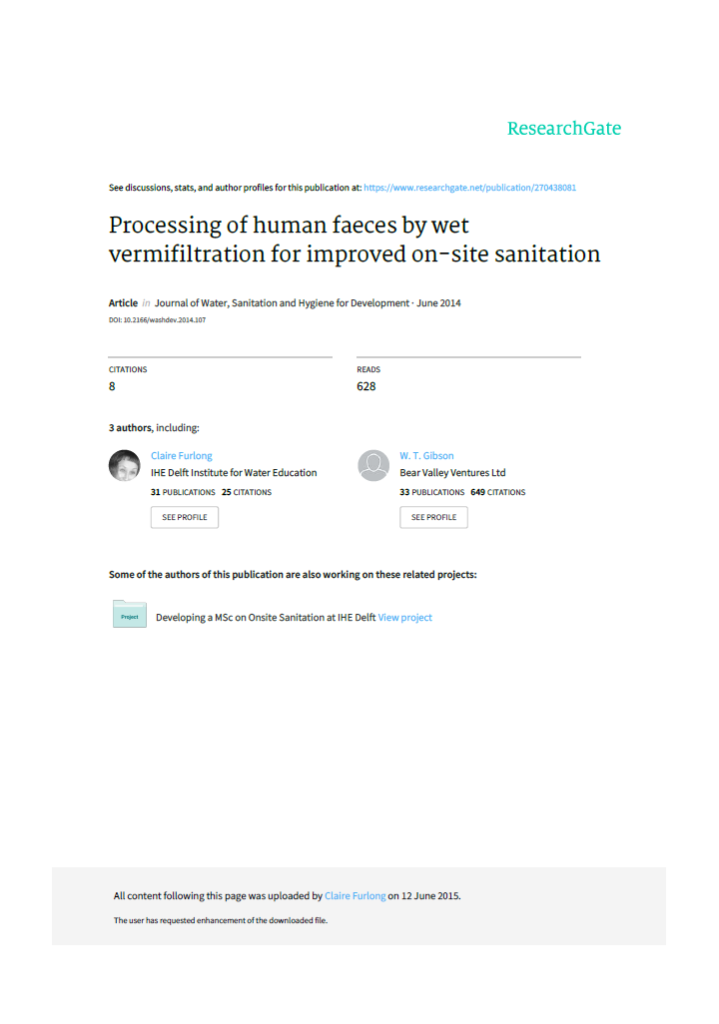Processing of Human Faeces by Wet Vermifiltration for Improved On-Site Sanitation
Author: Furlong, C., Templeton, M. R., Gibson, W. T.
Year: 2014
Publisher: The Journal of Water, Sanitation and Hygiene for Development.
The use of a vermifilter containing Eisenia fetida to degrade human faeces in a continuous wet system was explored. This paper aimed to understand the formation of vermicompost within the system, the quality of the effluent produced, and the effect of different bedding matrices. Eight filters were constructed, utilising four different bedding materials: four of these systems were seeded with 400 g of worms (vermifilters) while the others served as controls. The systems were flushed with 12 litres of water per day and the experiment was split into five phases, each with different feeding regimes. Between 23.7 and 24.7 kg of fresh human faecal matter was added to the vermifilters over the 360 day period. The presence of the worms was found to increase the faecal reduction to 96% in the vermifilters on average, compared to 38% in control systems on average. Statistically significant reductions in phosphate, COD and thermotolerant coliforms were achieved in the effluent of all vermifilters. The most suitable bedding matrix was a mixture of coir and woodchip. This study shows that there is potential for continuous treatment of human faeces using wet, onsite vermifilters.
Would you like to see other resources here?
Give us your feedback"*" indicates required fields
Still have questions?
You could not find the information you were looking for? Please contact our helpdesk team of experts for direct and individual support.


